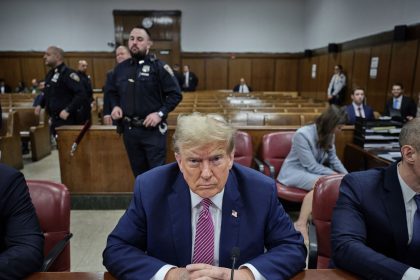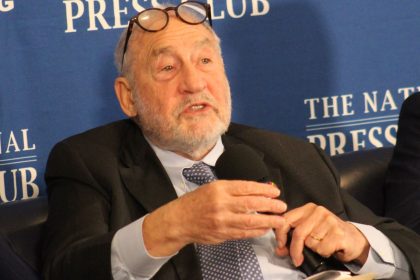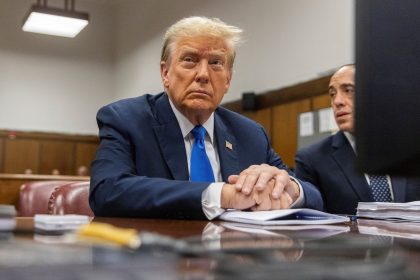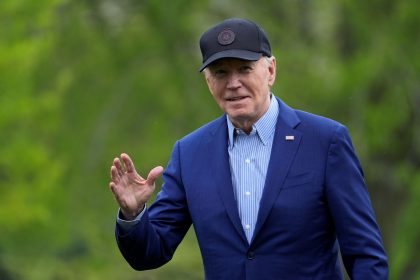Critics Question CARES Act Spending in Some States
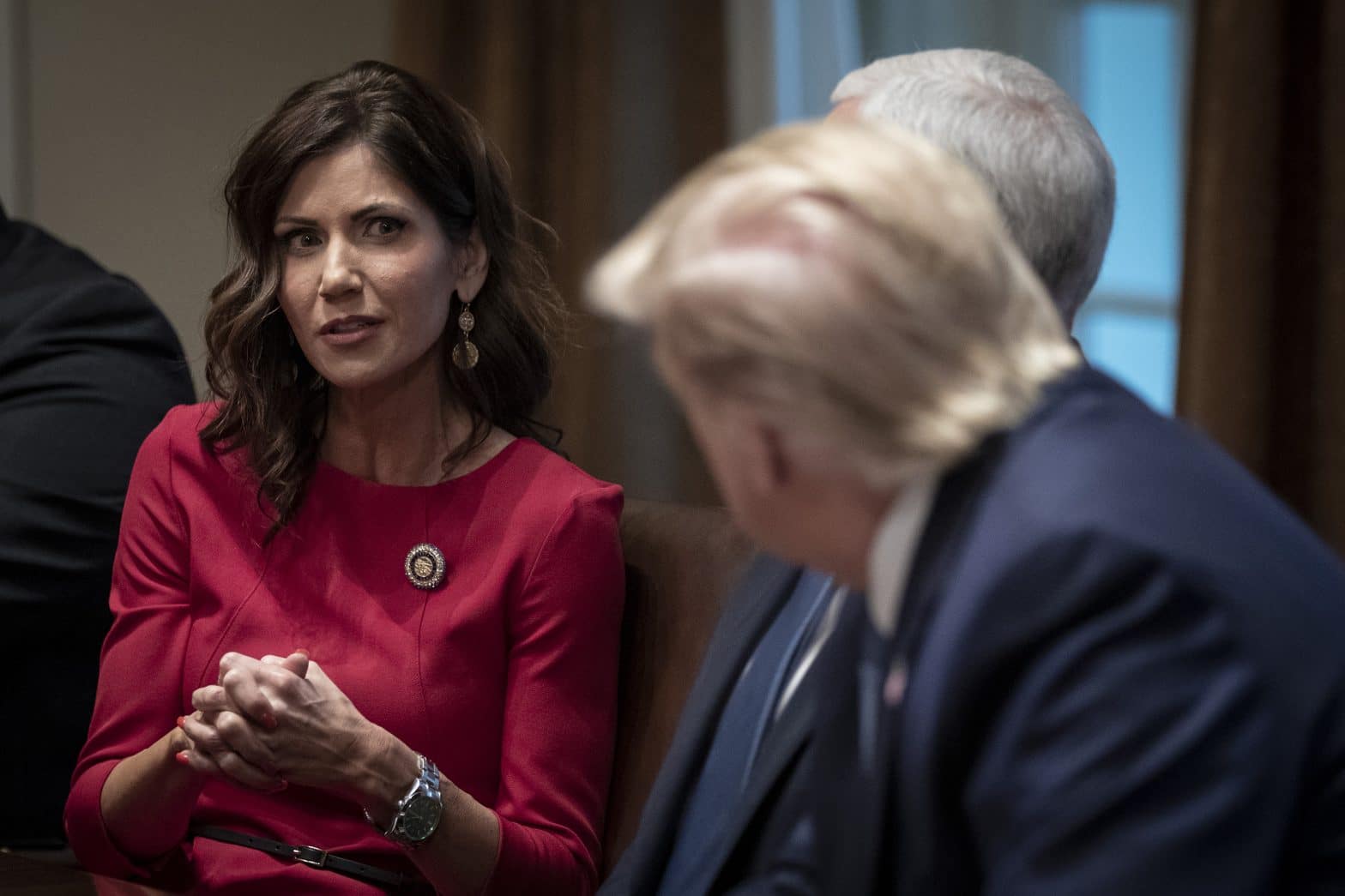
WASHINGTON — Even as governors ask Congress for more pandemic relief money and more leeway to spend it, critics say some states are pushing the legal limits of how previous emergency federal aid can be spent.
South Dakota auditors are worried about a decision by Republican Gov. Kristi Noem’s administration to spend $4.7 million on state trooper salaries and benefits. Idaho county prosecutors are questioning Republican Gov. Brad Little’s plan to spend up to $200 million on local public safety budgets and property tax credits.
And West Virginia Democrats say Republican Gov. Jim Justice’s plan to spend upwards of $50 million on road repairs near health care facilities violates the spirit of the $150 billion Congress sent to states, counties and cities under the March Coronavirus Aid, Relief, and Economic Security Act, or CARES Act.
“The use of CARES Act funding to fix highways is absurd,” U.S. Sen. Joe Manchin, Democrat of West Virginia, said of Justice’s plan in an emailed statement. “I’ve yet to meet a pothole that has the coronavirus. These funds should be used to help struggling West Virginians right now, not as some political slush fund.”
The scrutiny comes as members of Congress remain deadlocked over whether state and local governments need additional aid. While Democrats say governments need much more money, Republicans say they just need more flexibility to spend existing relief dollars.
Both Republican and Democratic governors have said CARES Act money is too restrictive and that they’ve struggled to find ways to legally spend it. But as Idaho’s, South Dakota’s and West Virginia’s experiences show, the U.S. Treasury Department already has opened the door to a wide variety of spending plans.
In all three rural states — where coronavirus case rates remain below the national average, though cases have been rising this summer — governors and their aides say they’re lawfully spending federal aid in ways that will boost the economy or help fight the virus.
“We’ve been on dozens of calls with Treasury since guidance unfolded,” said Alex Adams, administrator of the Idaho Division of Financial Management, which helps the governor make budgetary decisions. “We’ve heard their thinking, we’ve heard their rationale, and we feel very confident, based on the totality of conversations that we have had.”
The stakes are high, however. If federal auditors later find that money was misspent by state leaders, it must be repaid to the U.S. Treasury Department. In Idaho, county leaders worry they’ll be held responsible.
“That’s not money that we at that point would be able to give back without huge budget implications,” said Brad Rudley, chief civil deputy prosecuting attorney for Latah County, Idaho.
The CARES Act says state and local governments must use relief money to cover “necessary expenditures” incurred because of the pandemic. It says governments can’t use the money to cover costs they’ve already budgeted for, and must spend the money on costs incurred between March and December 2020.
The Treasury Department, however, has given state and local leaders permission to spend the money on a range of responses to the pandemic and related economic crisis. That includes letting states hold down business taxes by replenishing their unemployment insurance accounts.
Jared Walczak, vice president of state projects at the Tax Foundation, a Washington, D.C., think tank, said states should tread carefully, however.
“It seems likely that Treasury will take a generous view on most expenditures that have justification,” he said. “But that’s not a blank check for states to simply put it toward any project they had waiting in the wings and call it economic development.”
In some states, state auditors, local prosecutors and outside legal experts have questioned governors’ spending plans. That includes plans in Idaho and South Dakota to use federal aid to cover the salaries and benefits of public health and safety workers.
South Dakota officials have spent $4.7 million of the state’s nearly $1.3 billion in aid paying highway patrol officers, according to the state Bureau of Finance and Management. Most of the $75 million the state spent through the end of June went to various economic support efforts.
Liza Clark, the bureau’s commissioner and South Dakota’s chief financial officer, cited a Treasury frequently-asked-questions document that says “as a matter of administrative convenience” governments can use federal aid to cover entire public health and safety payrolls.
“We’re trying to follow the guidance to a T,” Clark said in a phone interview. She said her team cleared the state trooper spending with Treasury Department officials and are now trying to get permission to use federal aid to cover payroll costs for other public safety positions, such as corrections officers.
Yet South Dakota state auditors worry such spending violates a plain reading of the law and earlier Treasury Department guidance. “It’s caused a lot of concern by the auditors on whether or not this is what was intended,” Bob Christianson, the legislature’s auditor, recently told lawmakers, according to The Associated Press. Christianson declined to comment further to Stateline.
South Dakota House Speaker Steven Haugaard, a Republican who serves on the legislature’s audit committee, said he’s not worried about the public safety spending per se. “I just think we need to be very careful about presuming too much of anything about the use of the funds.”
Idaho’s governor has a more complex plan. He’s inviting counties and cities to apply for grants — paid for with federal money — to help cover their public safety budgets. Localities that take the money must agree to keep property taxes constant next year and pass on money they would have spent on payroll this year to taxpayers as a property tax credit.
Legislative leaders, who like the governor are Republican, cheered the proposal in June when Little announced it. “Meaningful property tax relief has been the acute focus of lawmakers for several years now,” House Speaker Scott Bedke said in a statement shared by the governor’s office.
County prosecutors aren’t convinced the maneuver is legal, however. They are worried their clients will be held responsible for returning misspent funds. Bonner County prosecutors have filed suit over Little’s property tax plan, as well as his plan for channeling money for broadband improvements through counties, asking a U.S. district judge to rule within 60 days on whether the proposals are legal.
“We’re not going to sign off on that without a court ruling that it’s OK,” said Scott Bauer, chief civil deputy prosecutor for the county. The Bonner County prosecutor’s office also has joined 16 other county prosecutors in writing the governor’s office to urge officials to confirm the property tax plan with the Treasury Department and state attorney general’s office.
In West Virginia, the governor has said his office confirmed with legal experts that certain road projects would qualify for federal assistance. But a law firm the governor’s office consulted gave the go-ahead cautiously, according to a memo that Justice spokesperson Nathan Takitch, shared with Stateline.
“A cautious approach should be taken before deciding whether to allocate (federal relief) funds to any particular project due to there being no specific mention of road or highways repairs in the list of eligible expenses set forth in Treasury’s guidance,” the national law firm Bailey & Glasser LLP wrote.
Justice said during a July news conference that his team came up with the road repair plan after running out of other ideas.
“We got down to a point in time where we had $100 million and we didn’t have a bucket for it,” Justice said. “And we could have done one of two things. We could have just sent it back to the federal government, or try to find a way that we could use it within West Virginia and use it for our people.”
He has since halved the money allocated for roadworks and allocated $50 million for broadband instead.
———
©2020 Stateline.org
Distributed by Tribune Content Agency, LLC.


















